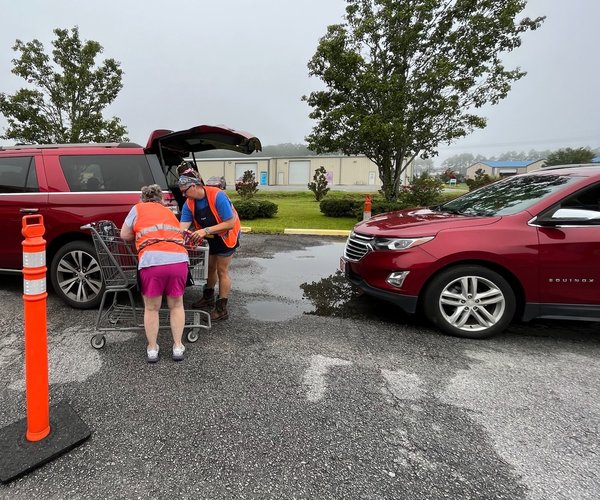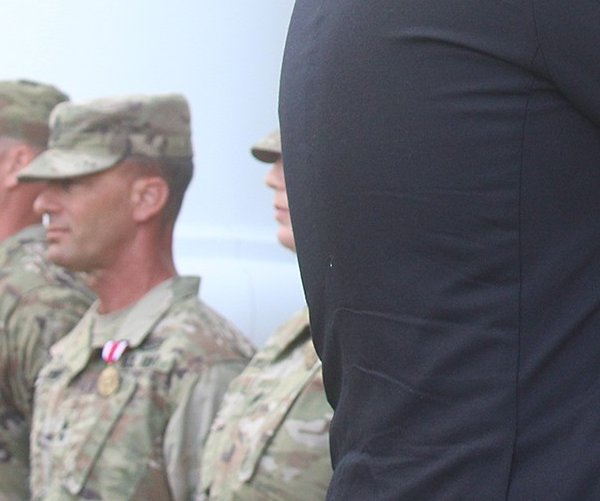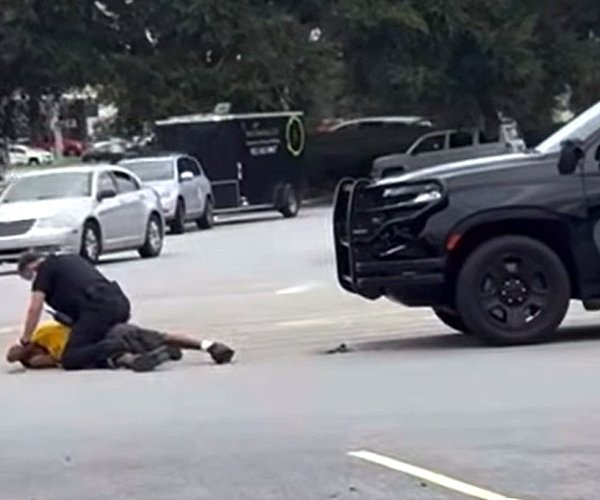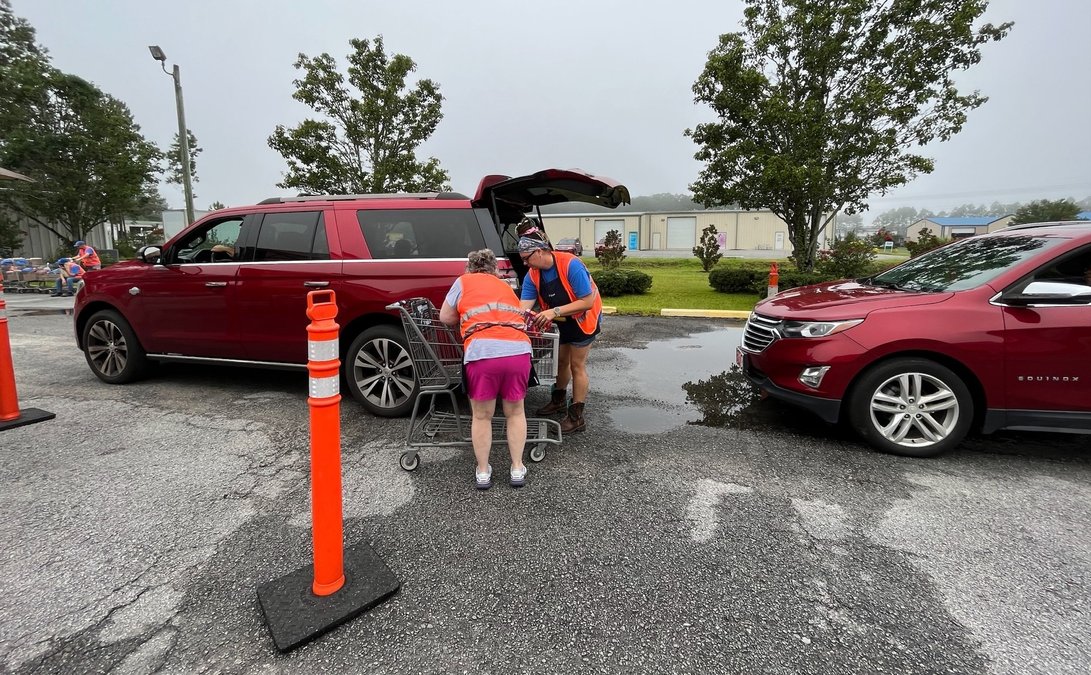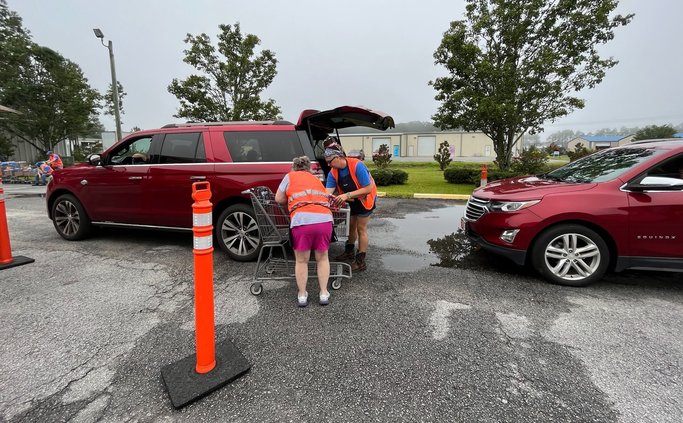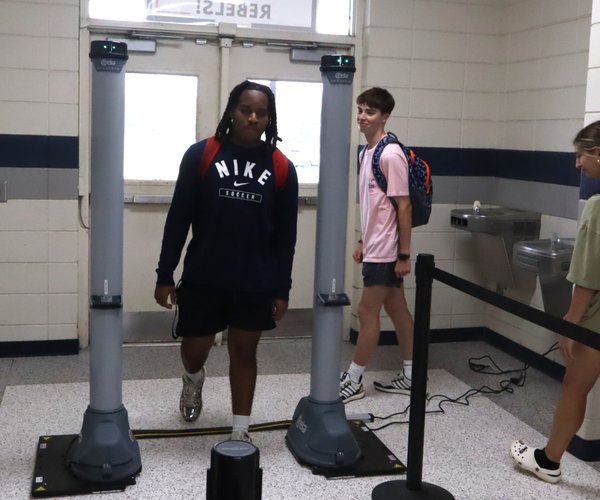Plans for a $7 million Shooting Sports Education Center at Georgia Southern University could go to the University System of Georgia’s Board of Regents within two months for construction to begin this fall.
As planned, the complex will feature a 16-lane indoor firearms range and a 16-lane indoor archery range, plus an Olympic-class outdoor archery range. Measuring more than 28,000 square feet, the building will also include classrooms and coaches’ offices. It will be located near the corner of U.S. Highway 301 South and the bypass, between the highway and Old Register Road.
About two years after discussion began for the joint project of the Georgia Department of Natural Resources and the university, the proposal is nearly ready, Vince Miller, the associate vice president for student affairs at Georgia Southern, reported Saturday at a Bulloch County Democratic Party forum on gun issues.
“We’re putting our package together, and we need to get final approval of the project from the Board of Regents between now and June, which would then give us the opportunity to continue to move forward, we’d probably break ground a few months after that, at the beginning of fall,” Miller said.
Although the regents who govern the state university system must approve the project, they will not put any money into it. But DNR, which required that the center be open to public use and include a gun range and not just archery, has offered $3.3 million.
Reserves of GSU student recreation fees might provide about $300,000 toward construction, Miller said. So far, private sources are providing the rest. An unnamed family foundation interested in developing young archers for the U.S. Olympic team and the Archery Trade Association are the largest donors.
A fundraising effort remains about $700,000 short of the projected cost, but university officials are making adjustments to match costs to funding, Miller said.
Answering a question at the forum, he said the National Rifle Association is not one of the contributors. After acknowledging that officials had an initial conversation about the NRA’s shooting range development team, Miller also said that the NRA has not been involved in the planning.
University and DNR officials have promoted the center to other backers as a way to expand recreation opportunities for students as well as the public. It will also create economic opportunities for Statesboro and Bulloch County as a site for state, regional and national competitions and could be used for training Olympic archers, Miller said.
Since the planning began, he said, GSU officials have also realized that the center could allow the university to develop an NCAA-sanctioned women’s rifle team. An expansion of women’s sports is needed as part of Georgia Southern’s bid to move up to the Football Bowl Subdivision.
“When we move to a new conference in a new division, women’s sports would need to move to be expanded, so a women’s rifle team is a natural fit for a facility such as this and would likely be one of the sports we will add as a women’s NCAA competitive sport,” Miller said.
Fees
Members of the public will pay fees to use the ranges for target shooting or archery. So far, the fees have not been determined. A range manger will be hired first, Miller said, and will conduct a market study to determine the fee structure.
Whether students who use the center will be charged a special fee in addition to their regular recreation fee has not been decided. If they are, it will be a lower rate than the public fee, Miller said.
He noted that Georgia Southern has been developing the Shooting Sports Education Center and the former Southern Links Golf Course – which is slated to open as a university facility this fall – at the same time. A reserve of student recreation fees was available to help fund both projects.
“They both will be fee-paying facilities, and that will generate their operating budgets as a self-sustaining operation,” Miller said.
City interest
Some months ago, university officials approached Statesboro city officials about the possible use of Special Purpose Local Option Sales Tax revenue for the project, and the hotel-motel tax was suggested as another possibility. Miller said university and city officials have also discussed the use of the firing range by city public safety personnel.
“We are already in conversations with the city about how does our city public safety utilize the firing lanes of the facility, getting access to that for their own skill development,” he said. “So we have a real good opportunity here and we’re bringing in a facility that is going to be a true partnership with the community and a true public space.”
City Council approved a 1 percentage point increase in the hotel-motel tax rate – from 5 percent to 6 percent – in February.
The state Legislature also has approved it, meaning it awaits Gov. Nathan Deal’s signature before becoming law, City Manager Frank Parker said.
“I make the assumption that Council is waiting until the Governor’s signing, prior to deciding how to spend the money,” Parker said.


